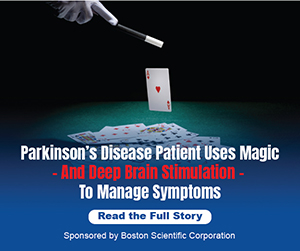
Photo: Deposit Photos
Falls are the leading cause of injury and death in older adults. While there are many reasons why older adults are at risk of falling including medications, vision loss, diabetes, heart disease, and confusion; hearing loss also is associated with a higher risk for falling.
“We know that there’s a direct link between hearing loss and falls,” said Catherine Palmer, Ph.D., president of the American Academy of Audiology; professor, University of Pittsburgh and director of audiology for the UPMC Health System.
Those with symptoms impacting their balance should see an audiologist. “Audiologists perform an extensive battery of tests as part of the evaluation of the vestibular system,” Palmer explained. Depending on the findings of the exams, an audiologist may provide management options and, in some cases, may refer the patient to an otolaryngologist, neurologist or physical therapist.
Audiologists are the primary healthcare professionals who diagnose, treat and manage hearing loss and balance disorders in patients of all ages. Tinnitus, which is a type of ringing in the ears, also can be associated with balance issues.
The Role of the Inner Ear in Balance
The inner ear contains the vestibular system, which includes sensory parts of the inner ear called the vestibular organs. Tiny canals and pouches on both sides of the head are specialized to detect motion and gravity. Their nerve signals interact with other sensory, motor, autonomic and cognitive circuits in the brain for several functions.
The vestibular system regulates balanced posture and locomotion, provides spatial and heading orientation for navigation, and stabilizes visual gaze during movement. Normal balance is maintained by integrating inputs from the vestibular, visual, proprioceptive (position sensation), and musculoskeletal systems.
Vestibular symptoms and dizziness are significant problems in older Americans. It is estimated that 30% of persons older than 60 years and almost 50% of those over the age of 85 years have dizziness and balance challenges along with related symptoms. According to a study, by Johns Hopkins University School of Medicine, individuals with untreated mild hearing loss were nearly three times more likely to have a history of falling.
Vestibular disorders can lead to dizziness, vertigo, nausea, migraines, blurred vision, and various forms of postural instability. Dysfunctions of the vestibular system can occur independently or with a hearing loss.
According to the Centers for Disease Control and Prevention, approximately 48 million Americans have some form of hearing loss. Those numbers continue to rise annually.
Noise-Induced Hearing Loss
Excess noise is a major contributor to hearing loss in the U.S. Based on nationally representative hearing exam surveys (1999-2004), an estimated 15 percent of Americans aged 20 to 69, or 26 million Americans, reported a history of loud noise exposure and also had high-frequency audiogram results suggesting exposure to excess noise.7 Recent animal studies suggest that noise exposure causing temporary measurable hearing loss may also cause permanent hearing loss that is not readily detectable using standard audiometric testing. Such damage may underlie the common complaint of having difficulty in understanding speech in noisy situations. The NIDCD encourages research to better understand noise-induced auditory damage to inform potential therapies.
Age-related Hearing Loss
Age-related hearing loss (presbycusis) is the loss of hearing that gradually occurs during aging. It is one of the most common conditions affecting older and elderly adults with approximately one in three people in the U.S. aged 65 to 74 exhibiting a hearing loss, and nearly half of those older than 75 have difficulty hearing.8 There are many causes of age-related hearing loss. Most commonly, it arises from changes in the inner ear, but it can also result from complex changes along the nerve pathways from the ear to the brain.
Technology Interventions for Hearing Loss
Individuals with mild-to-severe hearing loss can benefit from using a hearing aid, and many with severe to profound hearing loss benefit from having a cochlear implant. Advances in both hearing aid and cochlear implant technology are improving treatment options for many people with various degrees of hearing loss.











